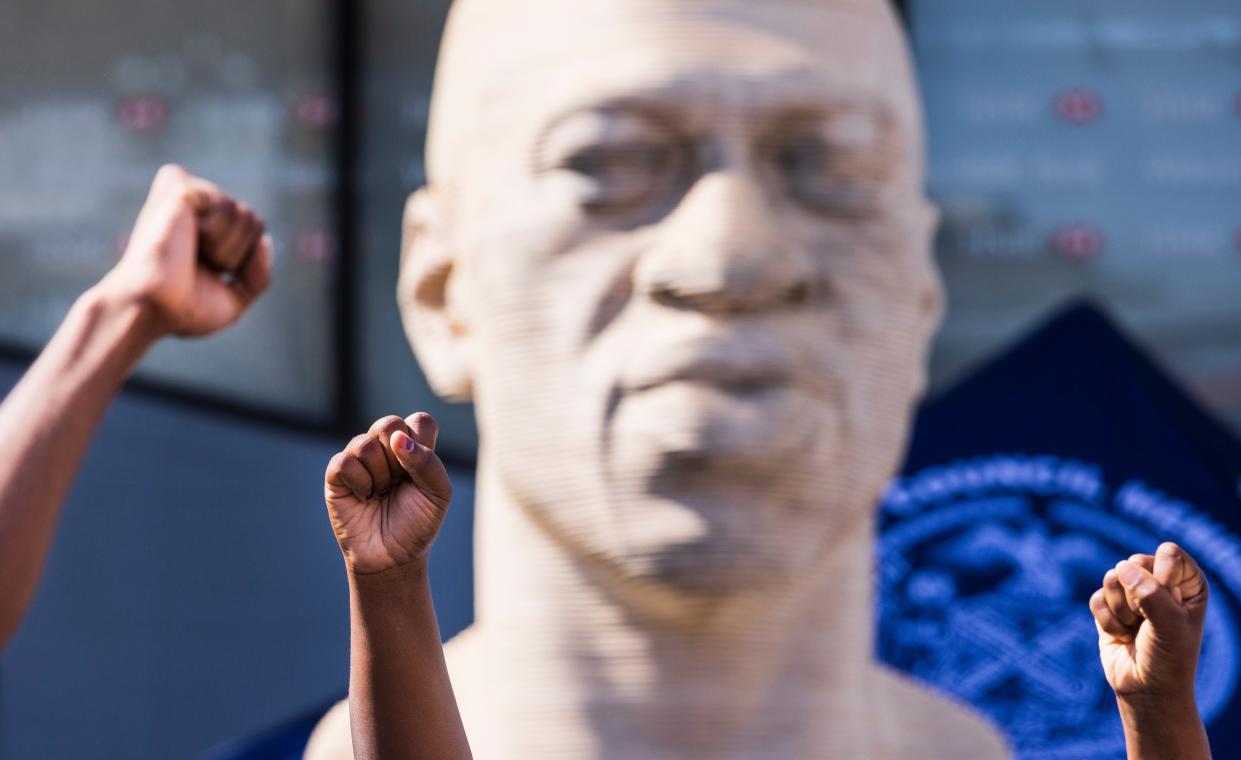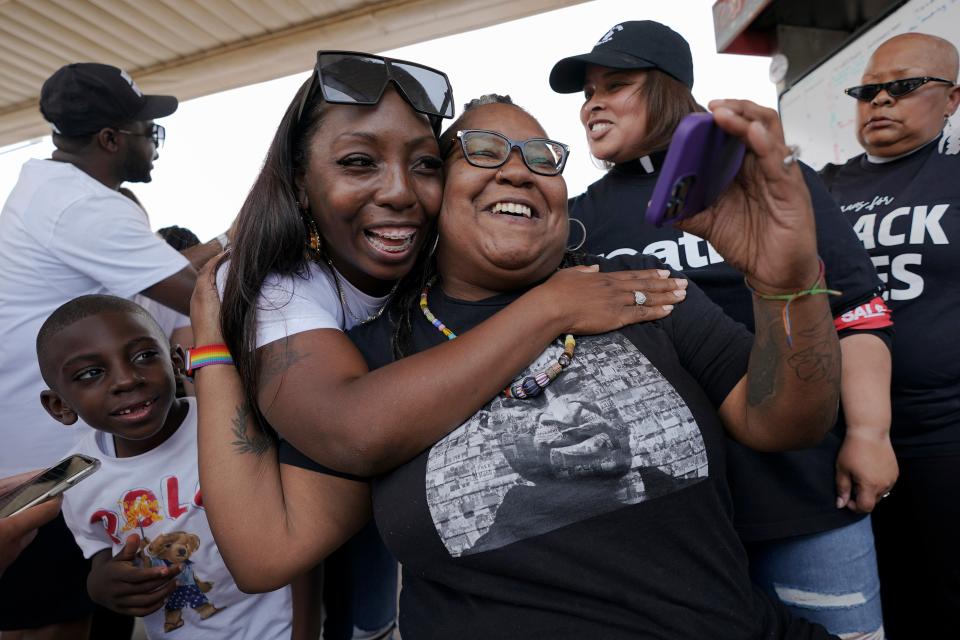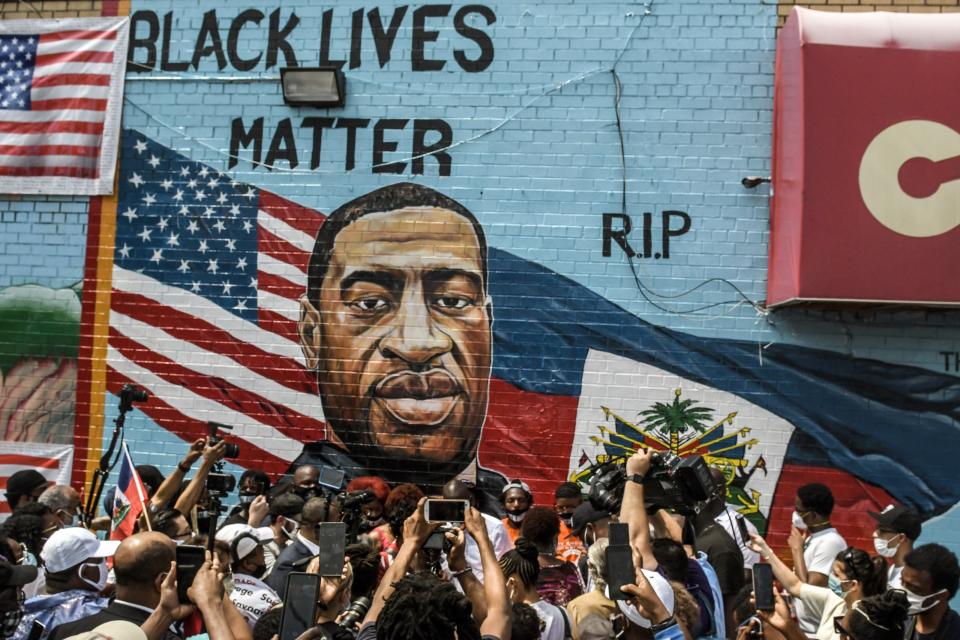Analysis: Derek Chauvin’s prison sentence should be the norm, not an exception

- Oops!Something went wrong.Please try again later.
Derek Chauvin’s 22-and-a-half-year prison sentence for the murder of George Floyd is one of the longest ever imposed over unlawful use of deadly force by a police officer.
But this example of accountability is currently the exception where it should be the rule while Black people are dying in disproportionate numbers at the hands of US police forces that, for the most part, escape the consequences.
The former Minneapolis police officer was convicted in April on charges of second-degree unintentional murder, third-degree murder and second-degree manslaughter in which he pressed his knee against his victim’s neck for 9 minutes and 29 seconds. Mr Floyd repeatedly said he could not breathe, begged for relief and eventually died.
Addressing the court prior to sentencing on Friday, Judge Peter Cahill told Mr Floyd’s family: “I acknowledge and hear the pain that you’re feeling,” adding that his ruling wasn’t based on “emotion or sympathy”, or public opinion.
Rather, Cahill told Mr Chauvin the decision was based on his “abuse of a position of trust and authority and also the particular cruelty shown to George Floyd” as further detailed in a 22-page memorandum explaining the rationale for the decision.
The typical sentence for this crime, taking into account the former police officer’s criminal history, is 12.5 years — which means the judge effectively added 10 years on top.
However, the prosecution, had asked for the statutory maximum sentence of 40 years. George’s brother, Philonise Floyd, told the court: “My family and I have been given a life sentence; we will never get George back”. For this reason, some campaigners have expressed disappointment with the jail term.
In addition to his custodial sentence, Mr Chauvin must register as a predatory offender and is not permitted to carry firearms for the rest of his life.
He has already served 199 days in prison. With good behaviour, the 45-year-old could be out on parole after 15 years, after serving two-thirds of his sentence, The Independent understands.
For many, this sentencing is something to acknowledge but not celebrate.
About 1,000 civilians are killed each year by law-enforcement officers in the United States; Black men are over two times more likely than white men to be killed by police.

Research also suggests that Black people are twice as likely as white people to be unarmed if fatally shot by police.
It is poignant that Chauvin’s sentence was handed down on what would have been the 19th birthday of Tamir Rice — the 12-year-old Black boy who was shot to death in Ohio by Timothy Loehmann, a white police officer who never faced criminal charges.
The officers responsible for the deaths of Breonna Taylor, Phillando Castille and Dantae Wright amongmany others have never had their day in court.
This further supports the resounding call from equality campaigner for policies that will begin to transform the US criminal justice system and restore trust between marginalised communities and police forces.
Black people are disproportionately subjected to police stops and the use of force, compared with other ethnicities — and bias in police administrative records has led to persistent underestimation of racial bias in policing.
The Chauvin trial outcome, while welcomed by many, does not solve the issue of institutionally-racist policing in the US. nor does break the centuries-long cycle of state-sanctioned brutality against Black people.
Nor is it a replacement for legislation that provides protection to those who need it.
For example, the George Floyd Justice In Policing Act of 2020, currently before the senate, aims to limit the unnecessary use of force by police officers.
It proposes, among other things, a national registry to compile data on complaints and records of police misconduct.
Moving forward, there is now a federal charge for Mr Chauvin to answer which the Floyd family hopes will result in the maximum sentence of 40 years to life being applied.
Friday’s sentence for murder was handed down by a Minnesota state court, but crime perpetrated by a law enforcement officer while they are on duty is a federal offence.
On 2 August, Chauvin’s colleagues, former Minneapolis police officers Tou Thao, J. Alexander Kueng and Thomas Lane, will all face federal charges for civil rights violations in Mr Floyd’s death; they are also accused of “deliberate indifference to his serious medical needs”. A date has yet to be set for Chauvin.

History has long underserved Black people in the US — and also in the UK, where Black people are over two times more likely to die in UK police custody than white people.
Earlier thid week, a West Mercia police officer, Benjamin Monk, was found guilty of killing ex-footballer Dalian Atkinson, a Black man, after kicking and tasering him repeatedly.
He is the first officer to have been found guilty of murder or manslaughter following a death in police contact or custody in England and Wales in 35 years.
Days before George Floyd’s murder in May 2020, Simeon Francis, a 35-year-old Black man, died in Devon and Cornwall police custody.
A court acquitted Sergeant Geraint Jones, from the same force, of a criminal charge after sharing a pornographic meme of George Floyd’s arrest in a WhatsApp group with other officers.
George Floyd’s murder and the subsequent sentencing is part of an ongoing reckoning around race and law enforcement unlike anything to have unfolded in modern history. But its full impact remains to be seen.

